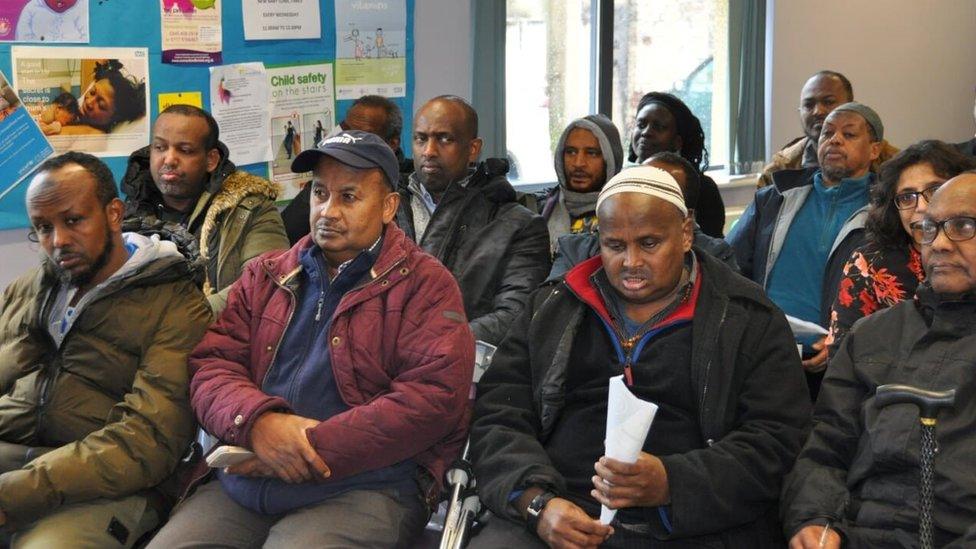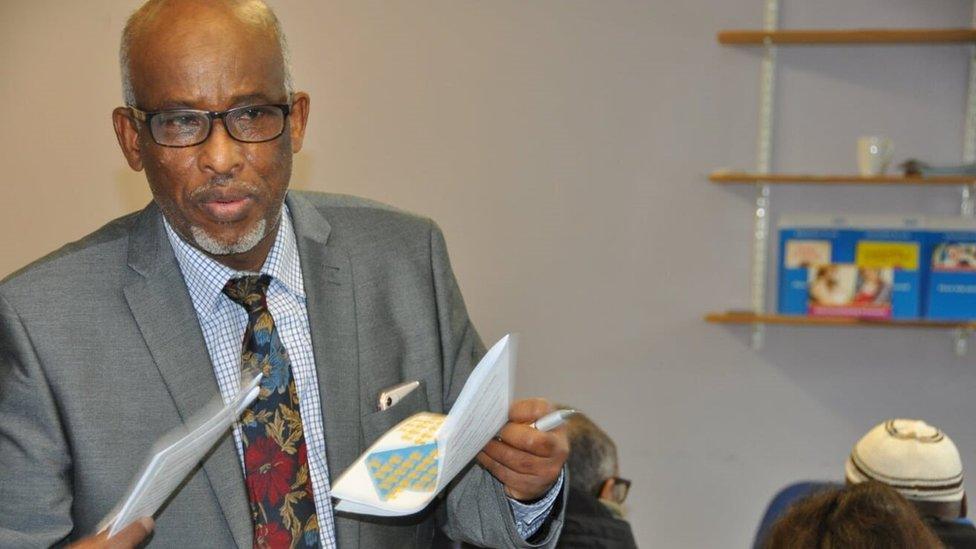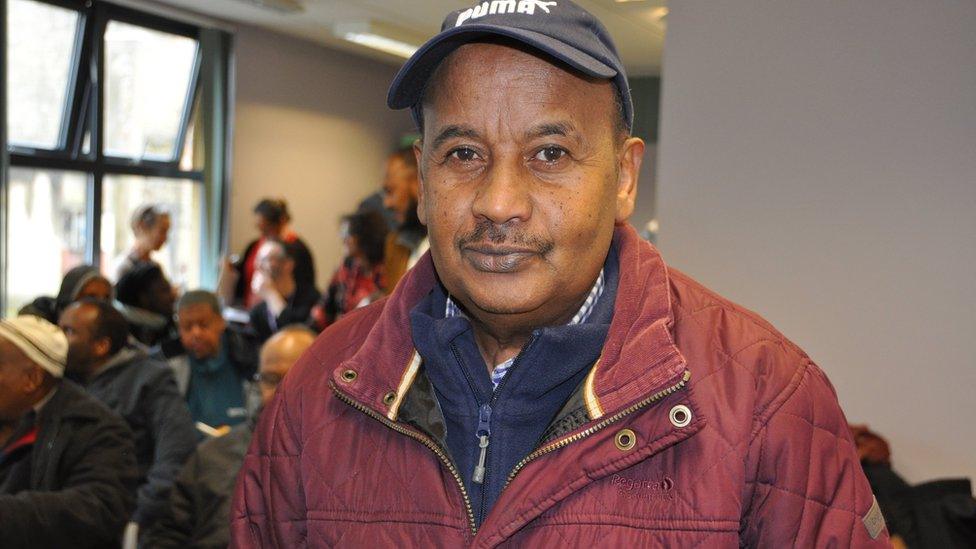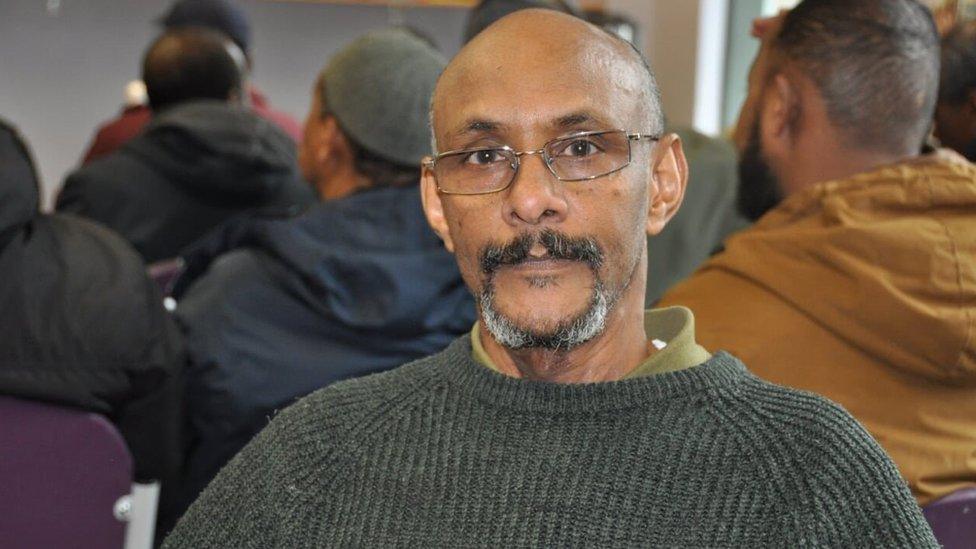Bristol's Somali men open up about mental health
- Published

Men from the Somali community gathered in Bristol to encourage positive discussions around mental wellbeing
A group of Somali men from Bristol have discussed mental health for the first time in their community.
Some said there was "stigma" around the topic of mental wellbeing but they want to challenge cultural attitudes.
The event at Charlotte Keel Medical Practice, was set up to raise awareness following a murder case, involving a Somali man with mental illness.
Organiser, Mohammed Elmi said: "We need to eradicate the taboo and encourage positive discussions."
Jamal Sheik-Mohammed, 51, of Lansdowne Court, pleaded guilty to the murder of Bashir Abdullah.
The court is awaiting psychiatric reports before his sentencing, due to take place on Bristol Crown Court on 12 March.

Mohammed Elmi, 60 who works as a support worker, handed out translated mental health awareness leaflets.
Mr Elmi works as a Health Link worker at Bristol Community Health, who along with the BCH team, has organised the session.
He wants to improve the Somali community's access to health services and helps with language barriers by translating English to Somali.
He said: "There is not enough information out there in the community so we are working together to build the language gap and provide a space for people to share their experiences.
"Knowledge is key, so we are trying to empower the community by equipping them to first spot the signs, to know where to go and lastly, to know they can openly talk about it."

Hussein Yusuf, 65, came with his brother to participate in the session
Hussein Yusuf, 65, brought his brother to the session and expressed the "need" to create more workshops tailored for men like him.
He said: "In our language you say 'so and so is crazy' when they could be having a severe mental disorder, so it's important we feel empowered and educated through events like this."

Abdi Sugule is part of the social prescribing team at Wellspring Settlement and helps refer people to local health services
Abdi Sugule works as a social prescriber providing a range of sessions, from physical activities to arts at Wellspring Settlement.
He talked about the factors that can lead to being diagnosed with a mental illness.
Mr Sugule said: "Individual circumstances of immigrating and the exposure to war and violence in countries like Somalia can cause post-traumatic stress disorder.
"Moving and adapting to a completely different country with a different language, along with the traumatic memories you carry and traditionally not talking about it can leave a negative impact on your mental wellbeing."
Mr Elmi wants to continue delivering workshops for men and broadening it out to women.